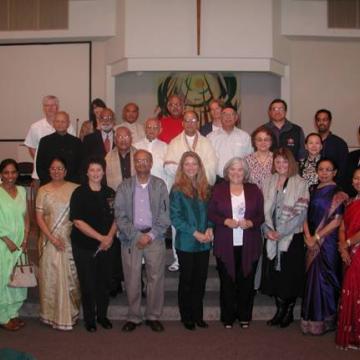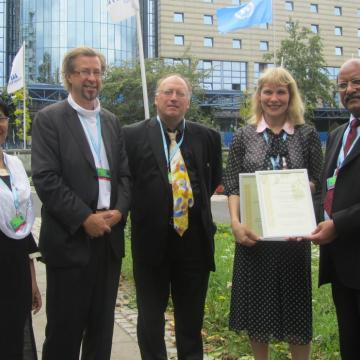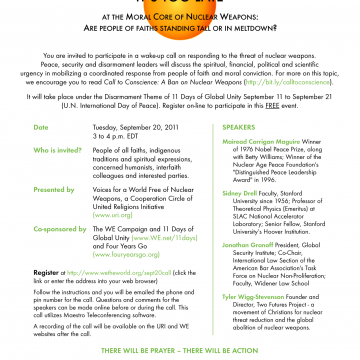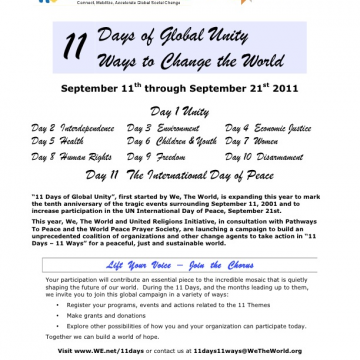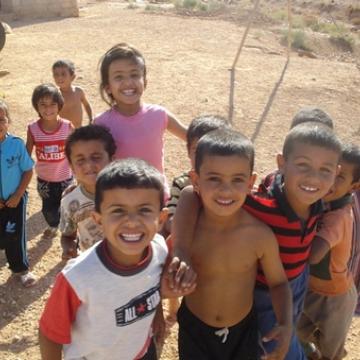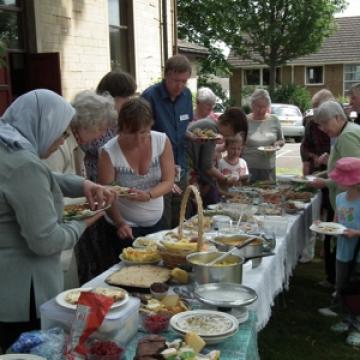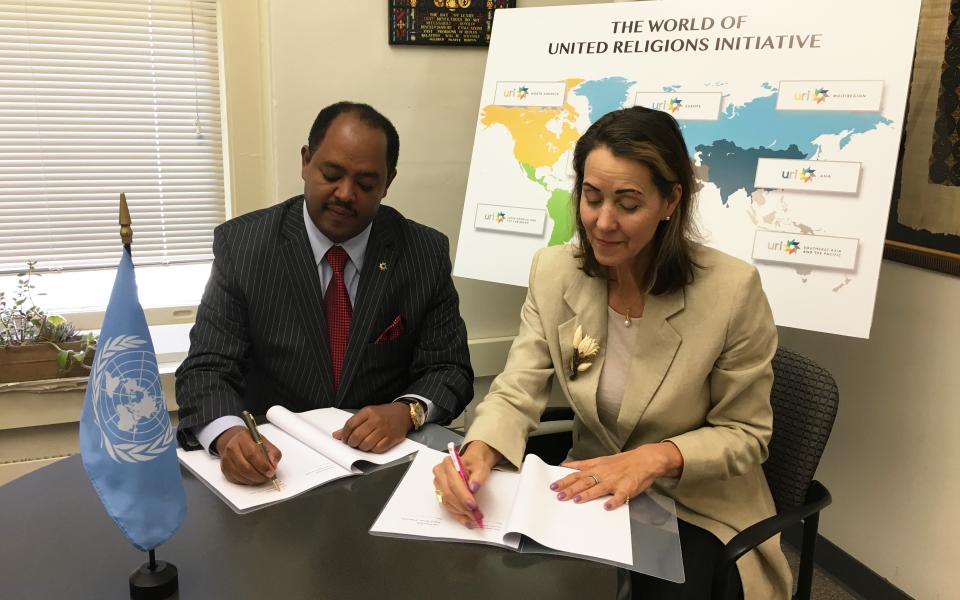
URI works at the policymaking level in partnership with UN agencies, urging lawmakers and governments to recognize the need for peace, justice, and protection of basic human rights.
Examples of our work in this Action Area:
- The United Religions Initiative at the United Nations CC, based at the United Nations in New York, provides an ongoing URI presence at the UN about topics like nuclear disarmament, sustainability, women's rights, and more.
- When the governor of Tennessee (USA) stated that he did not want refugees to resettle in his state, the Northeast Tennessee Chapter URI Cooperation Circle joined a chorus of voices to express their support for refugee rights. They published an advertisement in their local newspaper and said, “Let us all speak out against religious, racial and ethnic animosity and encourage all people to be compassionately welcoming.” A few months later, the governor reversed his position.
- Three German URI Cooperation Circles, along with ten other interfaith institutions, signed and delivered to their mayor a statement affirming freedom of religion and requesting equal treatment of followers of different traditions.
